Have you ever dreamed of having a close encounter with a huge school of fish and the majestic sharks that hunt them? Bait ball and shark diving is an incredible experience that allows you to witness the fascinating marine life up close.
The Azores is one of the best places to go for bait ball and shark diving as it offers some of the most diverse and abundant marine life in the world. With expert guidance, you can witness bait balls of thousands of fish being hunted by giant predators like sharks, whales, and dolphins. It’s an unforgettable experience that will stay with you forever.
However, it’s important to remember that these activities should be approached with caution. Make sure to follow all safety guidelines and listen to your guide when entering this magical underwater world.
This video follows world champion freediver Fred Buyle in his element, the waters of the Azores, accompanied by Chinese professional freediver Dada Li.
The overall goal was to make a video that shows the often documented azorean wildlife from a different perspective:
Sharks and mobula rays hunting in bait balls, hundreds of shearwaters flocking together, hammerheads and manta rays appearing out of the blue.
The video was shot during the summer of 2022 while some Behind the Mask members were enjoying some time off on Faial, Horta.
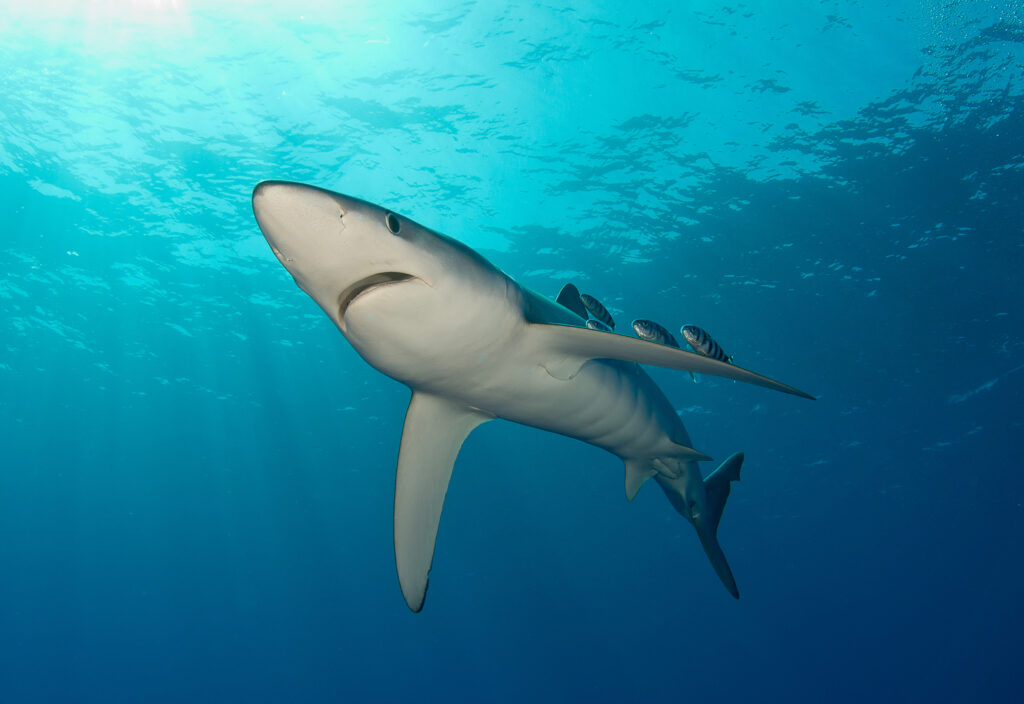
Scuba Diving or Freediving in the Azores
Whether you are an avid scuba diver or a serene freediver, this destination is a must do for every underwater addict. The Azores Islands, located in the North Atlantic Ocean, are a popular destination for scuba diving and freediving enthusiasts. A haven for underwater life, offering a unique opportunity to explore the depths of the ocean. From sharks to bait balls, there is an abundance of marine life that can be found in the waters around this archipelago. Whether you’re a beginner or experienced diver, you’ll be able to find something that interests you and suits your ability to explore the fascinating world beneath the waves. With crystal clear waters and plenty of sea creatures, this is an ideal destination for anyone looking to experience some of nature’s most beautiful sights.
Here’s some more information about scuba diving and freediving in the Azores:
1. Marine Life: The Azores boast a diverse array of marine species, including manta rays, dolphins, sharks, moray eels, various fish species and even migratory species such as whales and schools of mobula ray. The waters are also home to colorful coral formations and volcanic rock formations. When freediving, you may find that you can get a closer encounter. Streamline simple equipment and breath hold diving, with no exhalation of bubbles makes you a lot less intimidating and more approachable to most marine species.
2. Dive Sites: The archipelago offers numerous dive sites catering to divers of all levels. Some popular sites include the Formigas Islets, Baixa do Ambrósio, Dori Wreck, Princess Alice Bank, and the underwater volcanic landscape of Vila Franca do Campo.
3. Water Conditions: The Azores generally have favorable diving conditions, with good visibility ranging from 15 to 40 meters (50 to 130 feet) and water temperatures averaging around 18 to 24 degrees Celsius (64 to 75 degrees Fahrenheit) during the summer months. In such temperatures, a 7mm wetsuit or semi dry suit is recommended, although some people might feel comfortable diving in a 5mm wetsuit.
4. Diving Centers: There are several diving centers throughout the Azores, particularly on the islands of São Miguel, Pico, and Terceira. These centers offer guided dives, equipment rental, and diving courses for beginners and experienced divers alike.
There are also liveaboard opportunities to discover more sites and islands in one trip. Head over to our friends and partners at www.liveaboard.com to book a trip of a lifetime.
5. Natural Beauty: The volcanic origins of the Azores have created stunning underwater landscapes with caves, caverns, and cliffs that attract divers. The crystal-clear waters allow for excellent visibility, enhancing the overall experience. Many of these caves can be visited by recreational scuba divers and freedivers alike.
6. Safety and Training: As with any diving activity, it’s essential to prioritize safety. It is advisable to dive with a trained buddy or under the supervision of experienced scuba diving or freediving instructors. Several diving centers in the Azores offer freediving courses and training programs to help enhance skills and ensure safety.
Before embarking on any scuba diving or freediving adventure in the Azores, it is recommended to check local regulations, weather conditions, and dive center certifications. It’s also worth noting that some dive sites may require advanced certification or specific experience due to their depth or challenging conditions. Get covered, to ensure that whatever happens, we’ve got your back.
The Azores as an Eco Destination
Fortunately, to those of you that are eco conscious like us and want to limit your impact on the environment when traveling, the Azores islands have been awarded the highest honor of being the world’s first leading sustainable tourism destination.
The government has recognised the islands beautiful natural landscapes and the need to preserve them. They are committed to sustainability, and conservation efforts. The islands boast breathtaking volcanic scenery, pristine lakes, lush forests, and diverse marine ecosystems. Environmental protection is prioritized through initiatives such as strict regulations on construction and tourism development, the establishment of protected areas, and the promotion of eco-conscious activities like whale watching and hiking. The Azores prioritize renewable energy sources, with a significant portion of their electricity generated from geothermal and hydroelectric power. Locally-sourced and organic food options are prevalent, and efforts to reduce waste, promote recycling, and protect biodiversity are integrated into island life. Visitors to the Azores can immerse themselves in an eco-friendly experience, appreciating the islands’ natural beauty while contributing to their preservation.
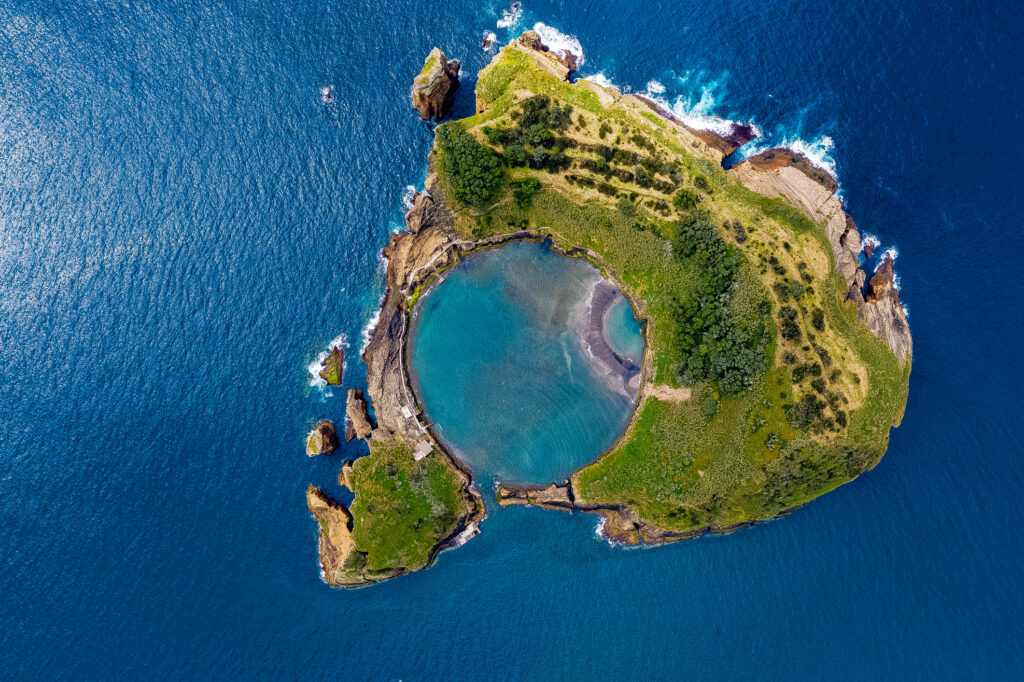
How to be an Eco-Tourist in the Azores
Tourists can play an active role in conservation efforts in the Azores by following these guidelines:
1. Respect the Environment: Follow designated trails, avoid damaging or removing plants and wildlife, and refrain from leaving any trash or litter behind. Respect protected areas and adhere to regulations to minimize disturbance to ecosystems.
2. Support Sustainable Tourism: Choose eco-friendly accommodations, tour operators, and activities that prioritize sustainability. Look for certifications like the “Green Key” label, which indicates environmentally-friendly practices.
3. Opt for Local and Sustainable Products: Something that is made easy in the Azores as they prioritize selling local produce over imported goods. Support local businesses and artisans by purchasing locally-made products, souvenirs, and foods. Choose restaurants that offer locally-sourced and organic ingredients, reducing the carbon footprint associated with imported goods.
4. Conserve Resources: Practice responsible water and energy usage by minimizing water waste, turning off lights and electronics when not in use, and conserving energy wherever possible. Choose accommodations that have sustainable practices in place, such as water-saving measures and energy-efficient appliances.
5. Engage in Eco-Conscious Activities: Participate in activities that promote environmental awareness and conservation, such as guided nature tours, marine wildlife observation (whale and dolphin watching), and birdwatching. These activities often have strict guidelines to protect the animals and their habitats.
6. Learn and Educate: Take the time to learn about the local ecosystems, flora, and fauna. Attend guided tours or visit nature interpretation centers to gain knowledge about the unique biodiversity of the Azores. Share your experiences and knowledge with others to raise awareness about the importance of conservation.
By adopting these practices, tourists can contribute to the preservation of the Azores’ natural heritage and support the ongoing conservation efforts on the islands.
Are you the Hunter or the Hunted ?
To everyone who is in quest of the oceanic experience,… the supreme kick,… it’s incredibly important to get our mind clear of thoughts and get a direct view of the world. So when you allow thinking to stop and you find you are in an eternal here and now. Most of us, if we got into that state of consciousness, might feel extremely frightened. because we are used to the idea that nature consists of controllers and controllees, things that do and things that are done to us.
Who’s in charge? You must simply listen to it and observe its beautiful patterns and its complexity.
The great experience, you get butterflies in your stomach and all kinds of things. I’ve got something very good to show you. You just wait! – Philosopher Alan Watts
This speech by Alan Watts provokes the question of whether or not we control nature, or are actually controlled by it? Are we the hunter or actually the prey, or both simultaneously.


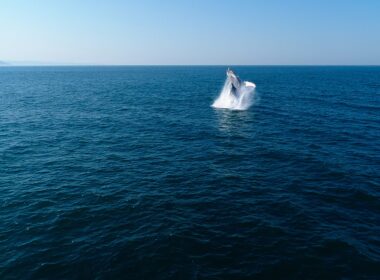
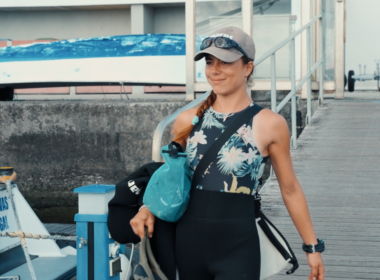
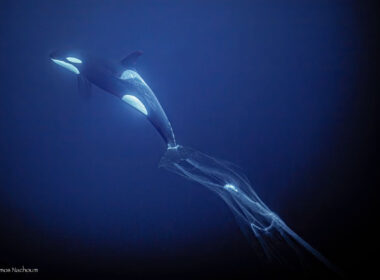

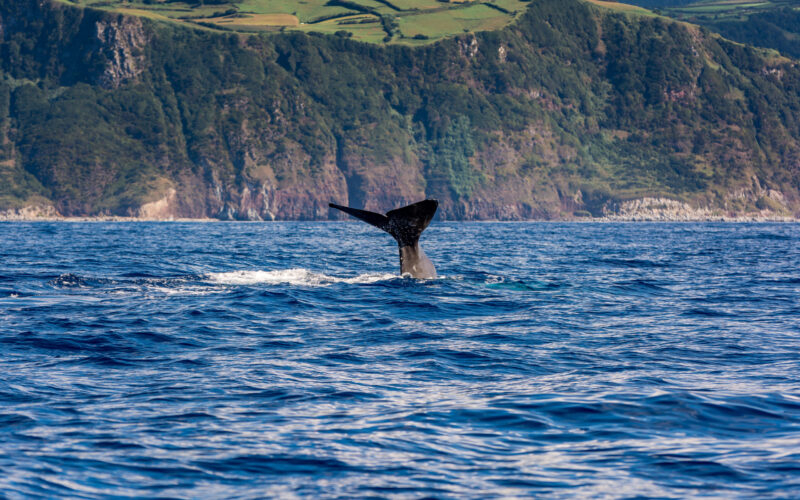
You’ve taken a complex idea and distilled it into something both clear and beautiful.
Thank you for your feedback.
Good shout.